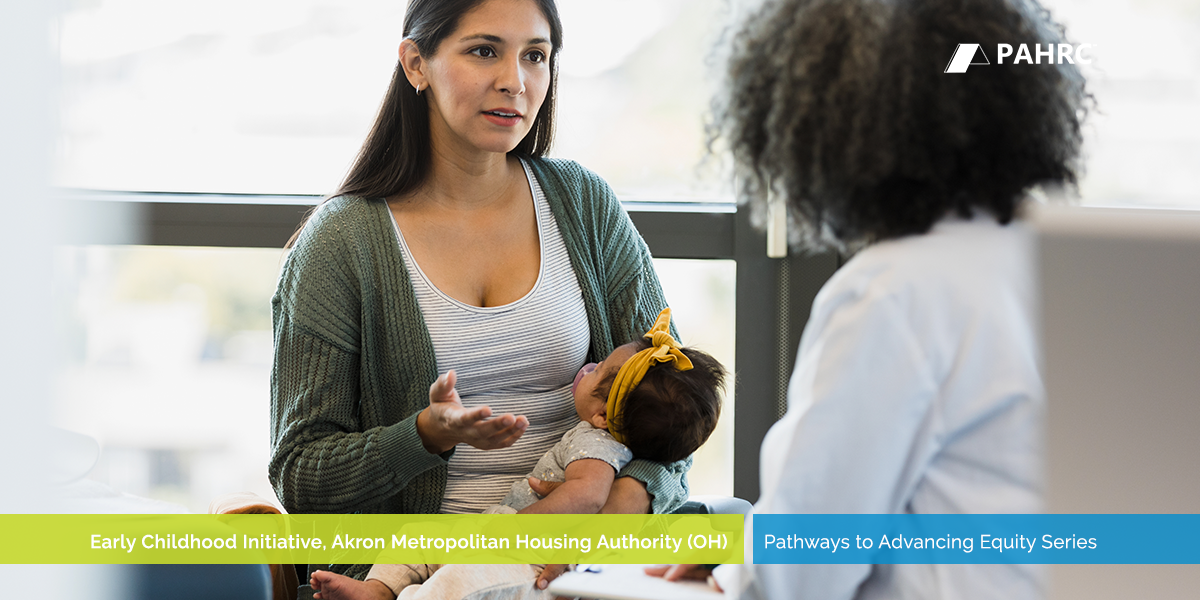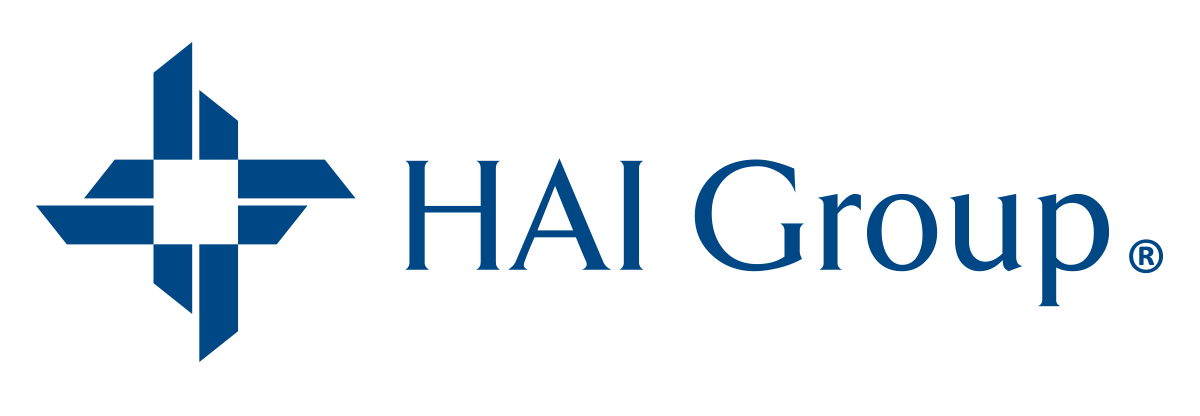Research Case Study: Akron Metropolitan Housing Authority's Early Childhood Initiative

Located south of Cleveland, Ohio, the Akron Metropolitan Housing Authority (AMHA) serves 10% of Summit County’s children under age 5. As a crucial partner in providing essential resources, AMHA helps young children in the community succeed as they grow.
AMHA's Early Childhood Initiative featured in “PHA Pathways for Advancing Equity,” a new report released by the Public and Affordable Housing Research Corporation (PAHRC), a member of HAI Group’s family of companies.
Challenge
AMHA recognized the need to improve the health and well-being of its residents and promote school readiness for young children in the community. Despite serving a significant portion of Summit County's children, many families faced challenges in accessing resources and support.
Solution
In 2007, AMHA developed the Early Childhood Initiative (ECI) through partnerships with area organizations. Two countywide initiatives, Summit Education Initiative and Summit County First Things First, catalyzed the creation of ECI by encouraging collaboration between AMHA, Akron Public Schools, the local health agency, and service providers.
Summit Education Initiative invited local organizations to partner and adopt evidence-based programs to improve student outcomes, creating the framework and social capital for partnerships like ECI. First Things First—a county-sponsored initiative that seeks to improve health for children from prenatal to kindergarten—established the goals and vision for ECI, focusing on improving health for children from prenatal to kindergarten.
Implementation
ECI began with a part-time service coordinator and expanded after securing additional support from private foundations. The program connects families to social service providers, empowers parents to become teachers for their children, builds relationships with families through organized events, and supports mothers postpartum. ECI is designed with Maslow’s Hierarchy of Needs in mind, addressing the immediate needs of shelter and safety before building belonging, self-esteem, and self-actualization.
“Through all these special initiatives, we’re focusing on Maslow’s Hierarchy of Needs. This means we begin by meeting each family’s basic needs first, then as they move up, offer them more intensive programming. When we first see families, we provide referrals to make sure their basic needs are met. Once we’ve helped them get a level of stability, we partner with families to establish goals to improve their child’s education, digital literacy, further their career, or improve their health.” AMHA
Key components of ECI include:
-
Parents as Teachers: A voluntary early childhood development program offering research-based curricula that help families raise children to be healthy, safe, and learning.
-
Supporting Partnerships to Assure Ready Kids (SPARK) Ohio: Prepares children for kindergarten by providing numeracy and literacy training materials, meeting with families to discuss children’s needs, and providing school tours over the summer months.
-
Mom-Me Time: A program for mothers postpartum to build community while their children participate in activities at the local YMCA.
-
Maternal Depression Program: Assesses mothers for depression, provides referrals, and facilitates support groups.
AMHA also partners with local organizations to help parents access resources. For example, AMHA works with Akron Children’s Hospital to offer free cribs and diapers through the Cribs for Kids program and Project MKC’s diaper bank. Additionally, Child Guidance and Family Solutions facilitates material depression support groups on-site.
Impact
In 2022, more than 300 people received home visits, and nearly 700 people participated in ECI. Using the Transition Skills Summary (TSS) tool, AMHA determined that ECI positively impacts participating families. Key findings include:
-
Preschool Readiness: Among children transitioning into preschool participating in SPARK, 85% were on track or developing in physical health or motor development, 79% in social and emotional development, 69% in approaches toward learning, 56% in language and literacy, and 56% in cognitive and general knowledge.
-
Kindergarten Readiness Assessment: 54% of children who stayed in SPARK through kindergarten were on track for language and literacy, compared to 10% who withdrew after less than one year.
-
Preschool Early Numeracy Skills (PENS): 10% of students who withdrew from SPARK after one year scored above average on numeracy, while 90% scored below average. In contrast, of those who stayed in SPARK, 7% scored above average, 36% scored average, and 58% scored below average.
-
Get Ready to Read! (GRTR): Showed favorable results for children who participated in SPARK, with 88% of parents reporting satisfaction with the program and increased understanding of child development.
Full Term First Birthday (FTFB)
A related initiative, Full Term First Birthday of Greater Akron (FTFB), connects pregnant parents to housing assistance and supportive services to improve infant and maternal health.
A 2012 report found that nine counties, including Summit County, had high infant mortality inequities, particularly among people of color and those in low-income communities. A subsequent evaluation found that 60% of pregnant women screened by Summit County Public Health were experiencing housing instability. Feedback collected by Summit County Public Health and the City of Akron from churches, social service providers, AMHA, community leaders, and families that recently gave birth and had children pass away resulted in FTFB, which addresses disparities by connecting pregnant parents to housing assistance and supportive services to improve infant and maternal health.
AMHA established a waiting list preference for pregnant individuals at risk of homelessness to participate in the program and offers them supportive services provided by partners of FTFB. The program establishes focus areas each year, such as training parents and caregivers on the ABCs of safe sleep.
Conclusion
AMHA’s Early Childhood Initiative (ECI) demonstrates the power of collaboration and targeted support in improving outcomes for young children and their families. Through partnerships, evidence-based programs, and a focus on meeting basic needs, AMHA has made significant strides in promoting health, well-being, and school readiness in Summit County.
For more detailed insights and similar case studies, refer to “PHA Pathways for Advancing Equity,” a report by the Public and Affordable Housing Research Corporation (PAHRC), a member of HAI Group’s family of companies.
This article is for general information only. HAI Group makes no representation or warranty about the accuracy or applicability of this information for any particular use or circumstance. Your use of this information is at your own discretion and risk. HAI Group and any author or contributor identified herein assume no responsibility for your use of this information. You should consult with your attorney or subject matter advisor before adopting any risk management strategy or policy



